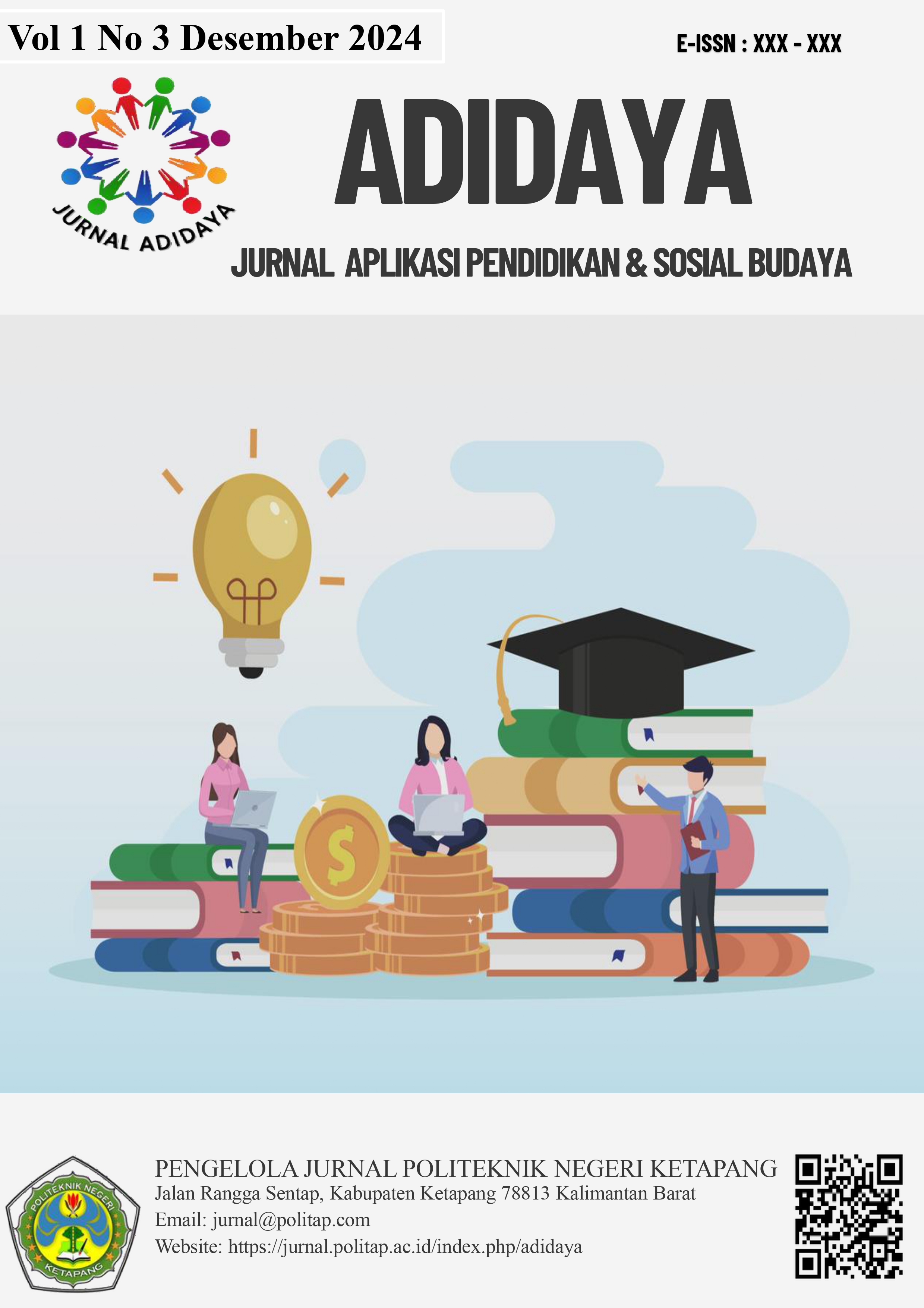THE MEANING AND PURPOSE OF LIFELONG EDUCATION AND THE RATIONALE AND IMPLICATIONS OF THE CONCEPT
 https://doi.org/10.58466/adidaya.v1i3.1707
https://doi.org/10.58466/adidaya.v1i3.1707
Keywords:
Lifelong Education, Learning ProcessAbstract
Lifelong education is an ongoing learning process from birth to the end of life. The concept is rooted in the human need to continuously develop and adapt in the face of social, technological and economic challenges. Education is not limited to formal channels in schools, but also includes informal and non-formal education that occurs in families and communities. The Indonesian government has recognized the importance of lifelong education in various regulations, including the MPR Decree and the National Education System Law, to improve the quality of human resources as a whole and sustainably. This research uses a descriptive qualitative method in the form of a literature study approach that refers to 10 literature sources. The results show that lifelong education plays a key role in shaping individuals and communities that are resilient and responsive to change. The implications of this concept include functional literacy, vocational, professional, civic education, as well as education that supports social development. In conclusion, lifelong education not only provides learning opportunities for individuals of all ages but also contributes to sustainable national development.
References
F. Malfi, Sudirman, E. Safri, and Rehani, “Pendidikan Seumur Hidup Perspektif Hadis,” Arus Jurnal Pendidikan., Vol. 3, No. 1, Pp. 15–23, 2023, doi: 10.57250/ajup.v3i1.189.
A. Hakim, “Teori Pendidikan Seumur Hidup dan Pendidikan Untuk Semua,” Jurnal Pendidikan Kreatif., Vol. 1, No. 2, Pp. 61–72, 2020, doi: 10.24252/jpk.v1i2.20018.
J. Hasibuan Et Al., “Paud Kasih Bapa Medan Estate Sebagai Program Nonformal Dalam Perspektif Pendidikan Seumur Hidup,” Learn Society: Jurnal CSR Pendidikan Dan Pemberdayaan Masyarakat, Vol. 4, No. 1, Pp. 260–263, 2023, doi: 10.30872/ls.v4i1.2557.
Nurfaidatulhasanah, “Pendidikan Seumur Hidup,” Cendekia, Vol. 15, No. Iv, Pp. 1–5, 2016, doi: 10.30957/cendekia.v15i2.722.
N. Sembiring, “Pendidikan Seumur Hidup dalam Perspektif Pendidikan Islam,” MUDABBIR Journal Reserch and Education Studies, Vol. 2, No. 2, Pp. 23–34, 2023, doi: 10.56832/mudabbir.v2i2.212.
E. R. Syafitri and W. Nuryono, “Studi Kepustakaan Teori Konseling ‘Dialectical Behavior Therapy,’” Jurnal BK Unesa, Pp. 53–59, 2020, [Online]. Available: https://core.ac.uk/download/pdf/287304825.pdf
M. I. Tamrin, “Pendidikan Non Formal Berbasis Masjid Sebagai Bentuk Tanggung Jawab Umat Dalam Perspektif Pendidikan Seumur Hidup,” Menara Ilmu, Vol. Xii, No. 1, Pp. 70–79, 2018.
W. Wawan, “Pendidikan Sepanjang Hayat Menurut Perspektif Islam (Kajian Tafsir Tarbawi),” Jurnal Kajian Keislaman, Vol. 3, No. 2, Pp. 191–205, 2016.
F. Jannah, “Pendidikan Seumur Hidup,” Vol. 13, No. 1, Pp. 3–4, 2013.
Suhartono, “Konsep Pendidikan Seumur Hidup dalam Tinjauan Pendidikan Islam,” Vol. 3, No. 2, P. 7, 2021.








 This journal has been indexed by:
This journal has been indexed by:

